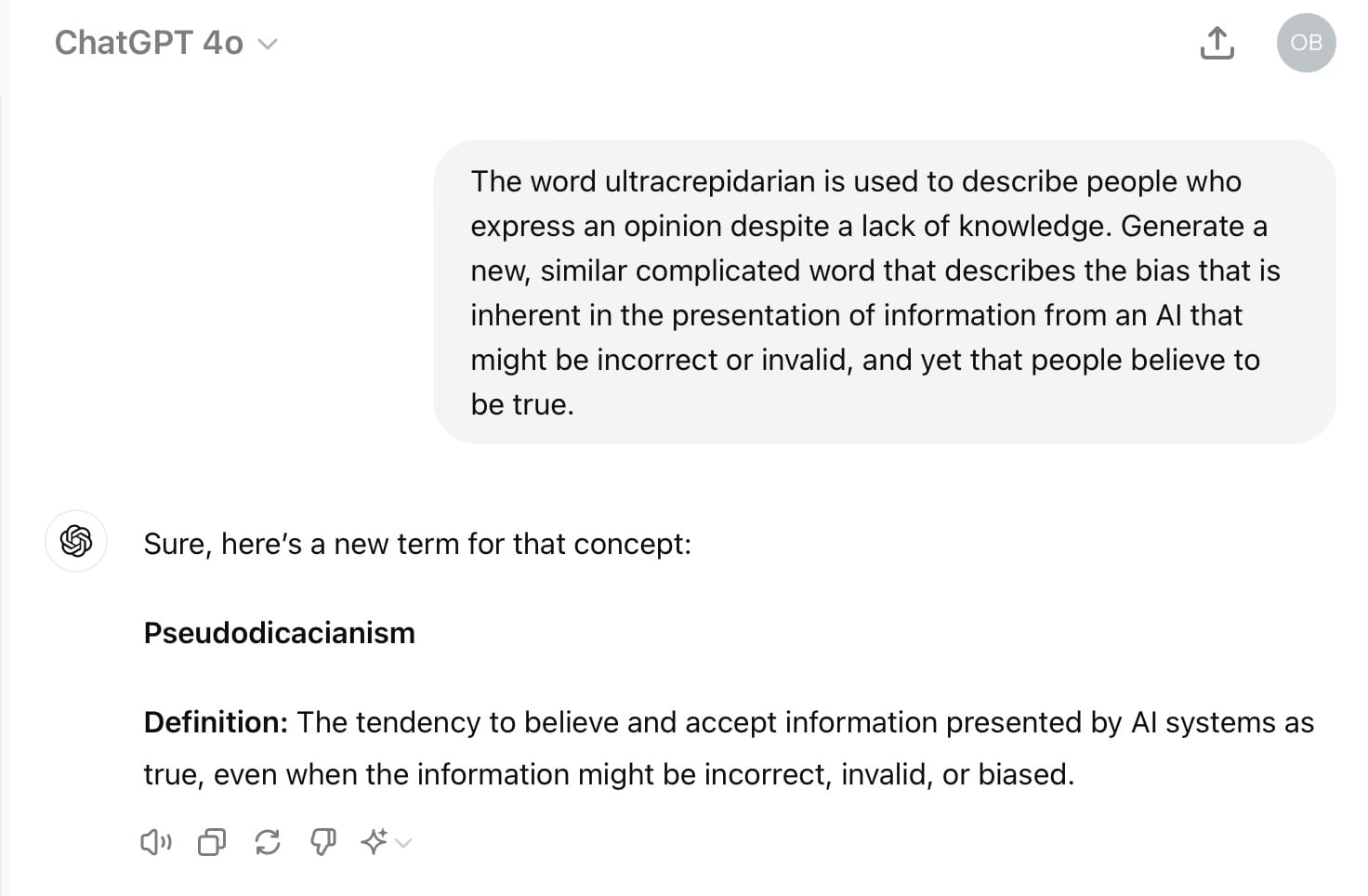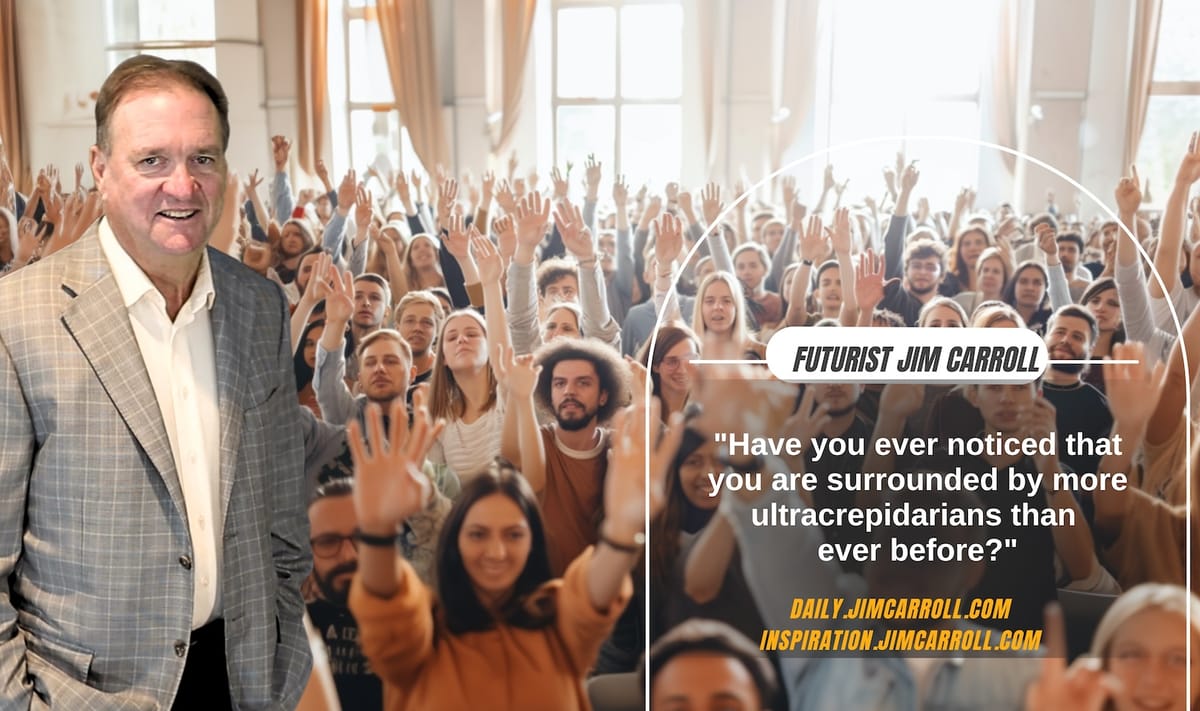"Have you ever noticed that you are surrounded by more ultracrepidarians than ever before?" - Futurist Jim Carroll
One of the biggest problems with the information age is that there is too much information.
Some of it is valid and correct, and much of it is not.
And everyone has an opinion about it.
Which they are all too eager to share.
Solicited, or not.
I'll give you the definition so you don't have to look it up:
Ultracrepidarian: A person who expresses opinions on matters outside the scope of their knowledge or expertise. i.e. "most patients are ultracrepidarians when it comes to medicine"
There are many reasons for the fact that there seem to be so many more, including the explosion of misinformation, the acceleration of connectivity, a general and growing distrust of traditional institutions, and much more. We're in quite a mess, and it can be pretty tedious for many people and many professions to listen to all the noise.
Since many of my keynotes touch on innovation, it's also an increasing challenge for organizations. I'll often talk about the 'innovation killers' - you know, the ideas that shut down new thinking. "It won't work." "It's a dumb idea." "It's doomed to fail." "It's too risky." As you know, I often explain that these ideas cause organizational sclerosis that clogs up the ability of an organization to discover, chase, and implement new ideas.
Given the rise in the number of ultracrepidarians today, the innovation challenge has become much more extreme - when everyone is an expert without expertise, it's a challenge for any real expert to move things forward. Anyone with a new idea, process, product, or invention is now ultimately faced with a barrage of experts, a committee of instant topic geniuses, and a community of fabricated specialists. It used to be that you could run the gauntlet of excuses and get past the barriers of stifled thinking - now, it has become more difficult due to the increase in the number of ultracrepidarians about.
What do you do about this? There's not much you can do other than to fight harder for your beliefs, ground yourself with deeper insight, and stand your ground with more facts. Try hard not to acknowledge them when you run into them - debate is their oxygen, and getting attention is their goal, so do your best to ignore them. Recognize that the challenge today si greater than ever before, and act accordingly.
By the way, today's background image was generated with an AI. The first version that it came up with looked like this:

Notice anything? A preponderance of women.
I first used this prompt to generate the image:
"A photo taken with an iPhone of a room full of people who are standing. They are looking into the camera, and most are holding their hand up high, eager to express their opinion., The room is bright, airy with a lot of light."
That's the image that MidJourney, my AI image generator of choice, gave me. I kept having to adjust the image prompt until I specifically asked the system to base the image differently.
"A photo taken with an iPhone of a room of people. Most of the people are men, with just a few woman. All of them are standing. They are looking into the camera, and most are holding their hands up high, eager to express their opinion., The room is bright, airy with a lot of light.
You are probably reading here and there that many AI systems tend to have a built-in bias. This much seems to be true. At one point, I specifically asked for a version of the image that had more men than women, and it gave me this. I had to keep playing with the prompt to get a better balance.

Scan carefully, and you'll notice one guy in the picture.
I won't try to go into reasons for this skewing of results but do believe that someone will come up with some complicated word like ultracrepidarian to describe the bias that exists in many AI generators.
Wait! I can do that. I asked ChatGPT!

"The word ultracrepidarian is used to describe people who express an opinion despite a lack of knowledge. Generate a new, similar complicated word that describes the bias that is inherent in the presentation of information from an AI that might be incorrect or invalid, and yet that people believe to be true."
To which I got the response:
Pseudodicacianism
Definition: The tendency to believe and accept information presented by AI systems as true, even when the information might be incorrect, invalid, or biased.
And there you have it.
You are soon to be surrounded by too many pseudodicacianists.
Futurist Jim Carroll will invent a new word when necessary so you don't have to.

